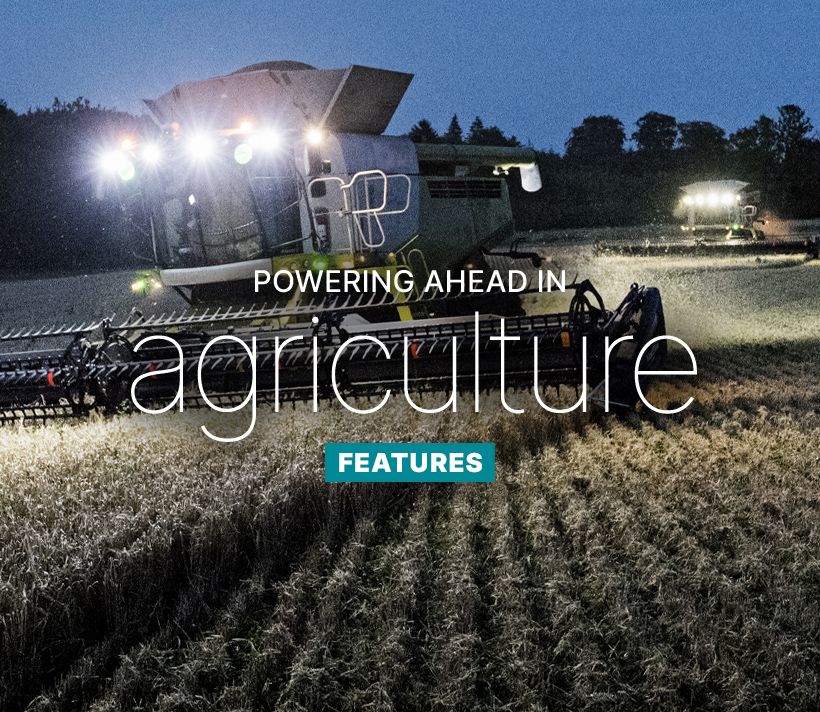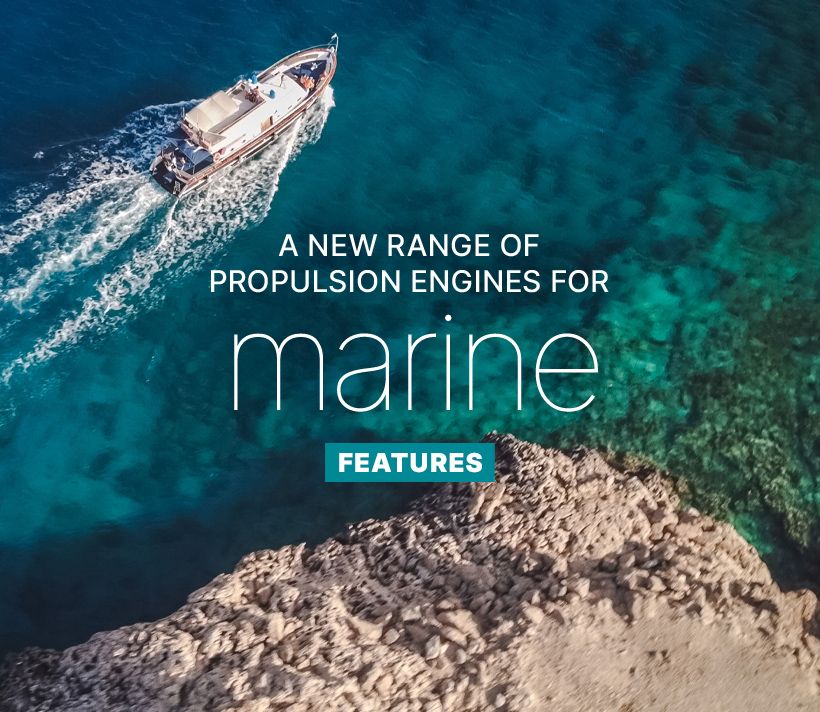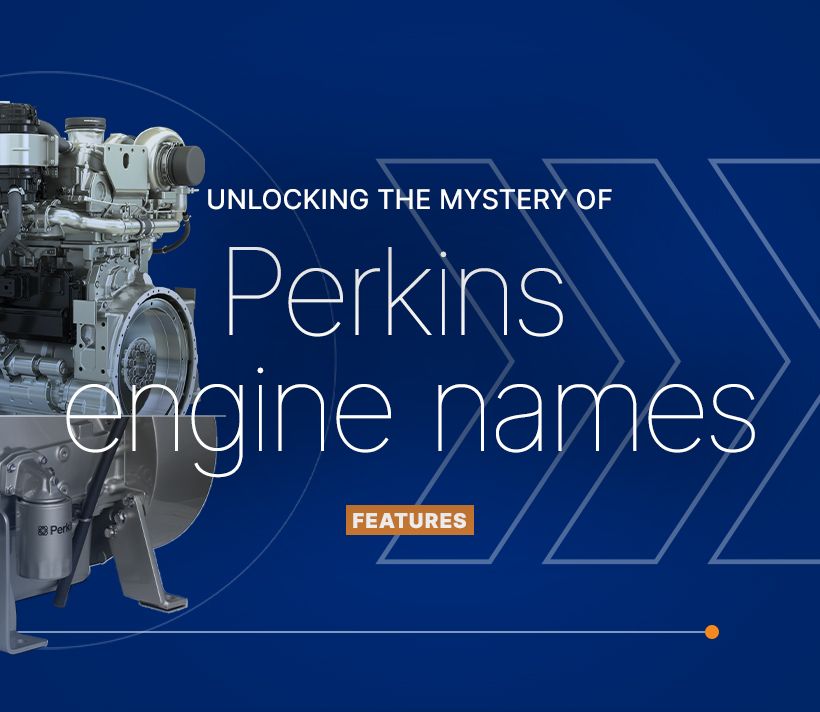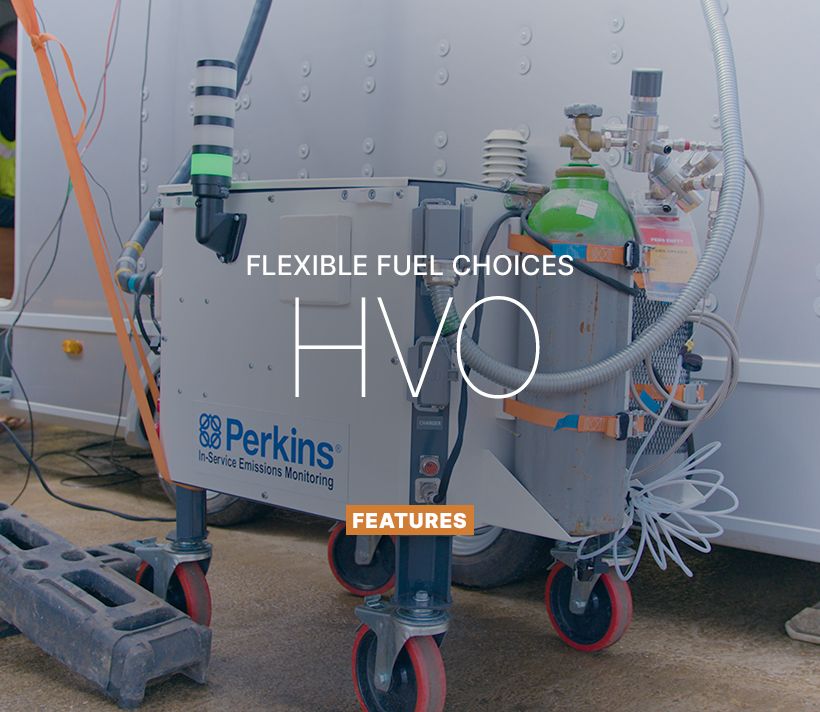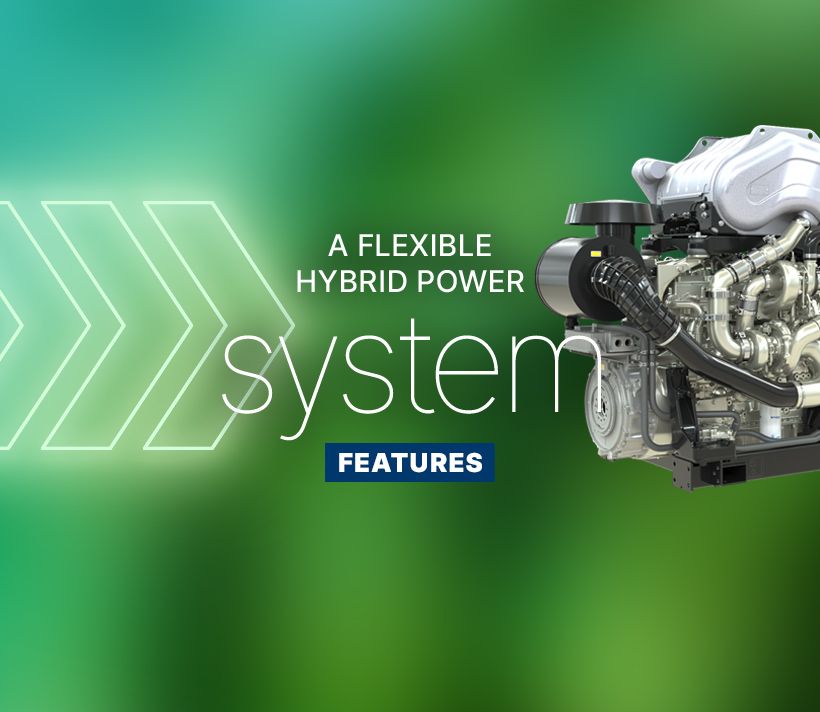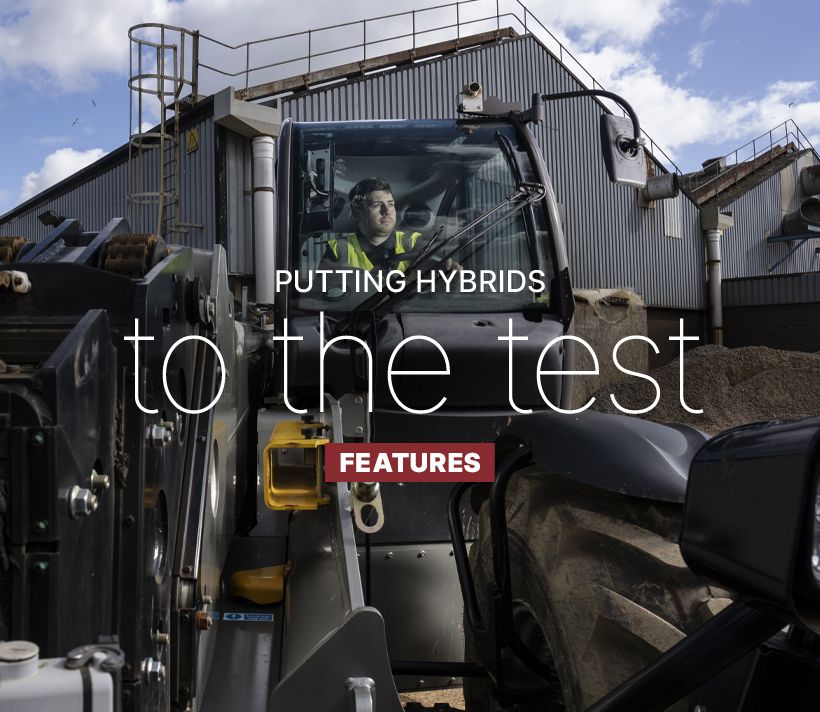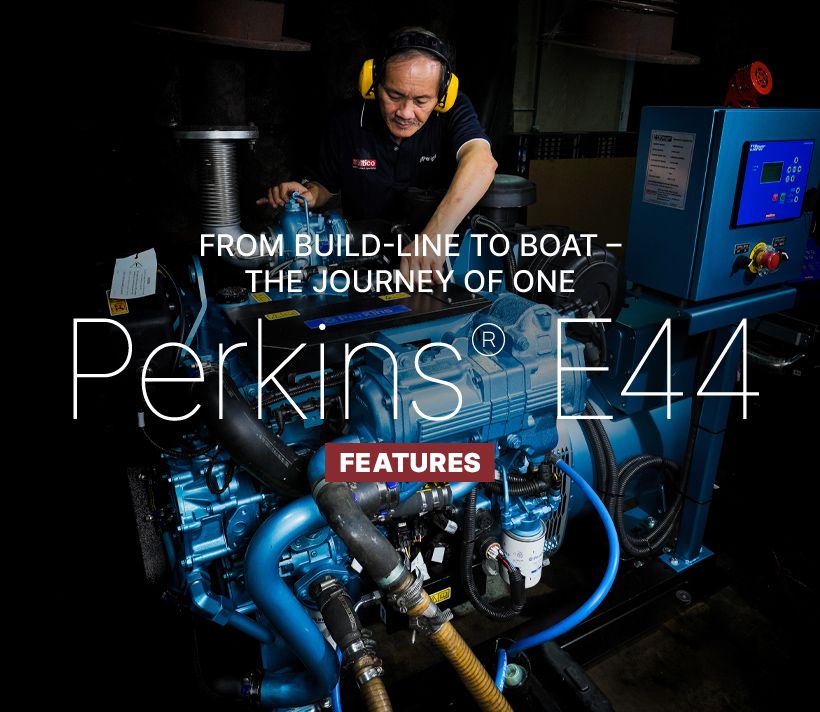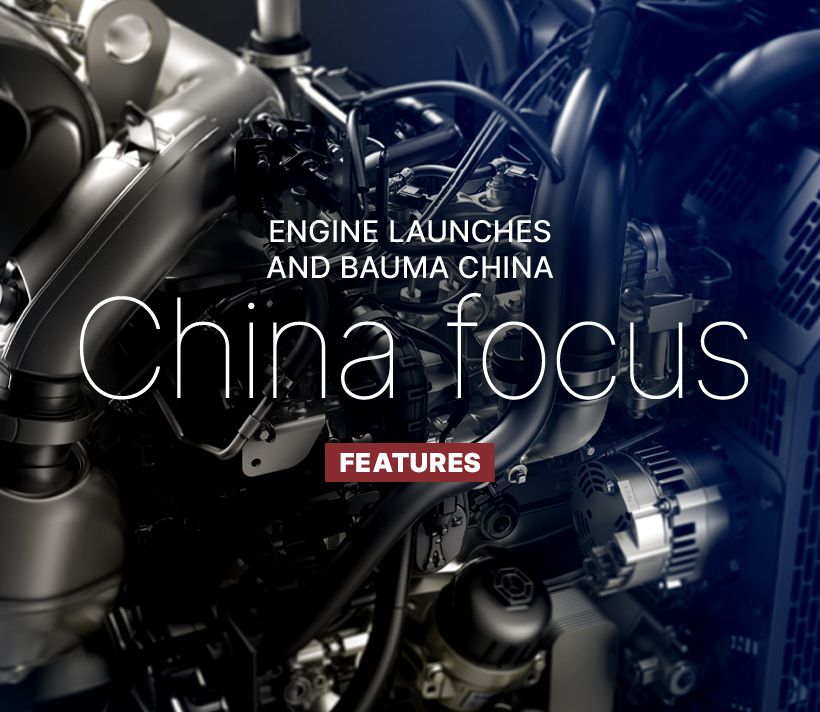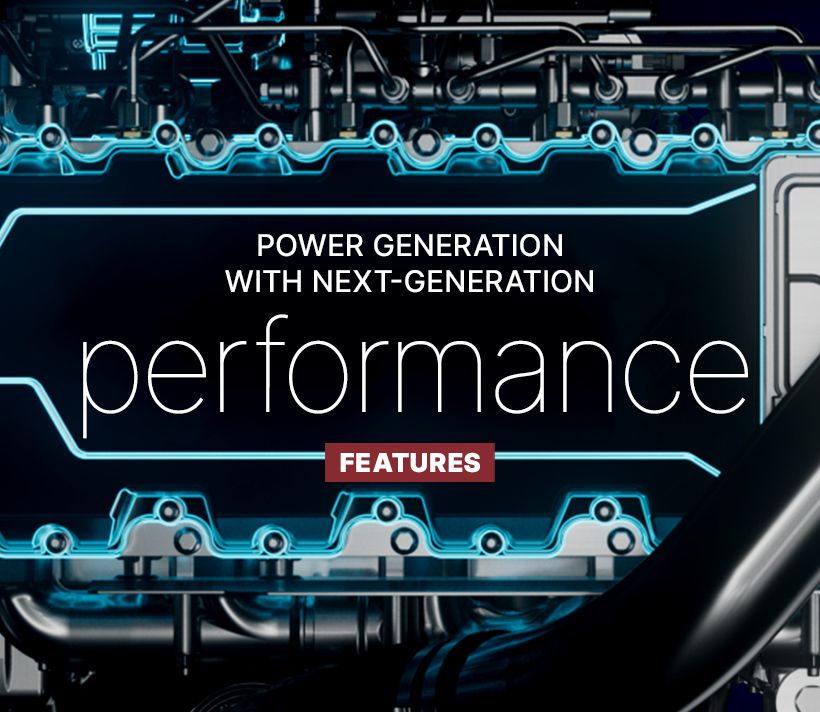That vast output is itself powered by an estimated 140,000 pieces of off-road agricultural equipment. But with California’s emission standards stricter than U.S. EPA standards, its growers are looking to OEMs for support. Powernews ag correspondent Adrian Bell sat down with Keri Mallard, Vice President and General Manager of Monarch Power Supply, Perkins distributor for the Western region of the U.S., to get the lowdown.
We’ve been working with Perkins since 2022, building on the deep industry expertise and legacy of Quinn Company. Founded in 1919, Quinn has been a trusted name in equipment and power solutions across construction, agriculture and industrial sectors. Understanding the value of Perkins engines within these industries, Quinn Company made a compelling proposal to Perkins, showcasing their extensive knowledge of the industry, Western region and our commitment to customer service.
Recognising Quinn’s ability to deliver both the high-quality products and exceptional support, Perkins appointed Monarch Power Supply as its authorised distributor in the Western region for Perkins engines, parts and service – a go-to expert offering genuine Perkins parts and certified service.
Monarch combines Quinn’s longstanding reputation for excellence with Monarch’s undivided focus on Perkins engines, thus ensuring that customers receive the best power solutions and aftermarket support.
U.S. emissions standards for agriculture is governed by U.S. EPA Tier 4 Final standards. These focus on reducing emissions from non-road diesel engines, including those in agricultural equipment. The key requirements include significant reductions in particulate matter (PM) and nitrogen oxides (NOx), achieved using advanced technologies like exhaust gas recirculation (EGR), diesel particulate filters (DPF), and selective catalytic reduction (SCR) systems. The legislation also mandates the use of ultra-low-sulphur diesel (ULSD) fuel.
All Perkins engines are designed to meet or exceed these stringent Tier 4 standards. OEMs can therefore satisfy growers’ demands to tackle demanding agricultural tasks with high power and efficiency, while offering advanced emissions control technologies that reduce pollutants.
What’s more, the availability of Perkins genuine parts – including the important DPFs, EGR valves and SCR systems – gives growers peace of mind that all replacements comply with those strict emissions standards. Growers and OEMs alike can also be confident that Perkins-certified technicians are trained to service these systems to keep them compliant, reliable and operating at peak performance.
Yes, the California Air Resources Board (CARB) – enacted by then-Governor Ronald Reagan, back in 1967 – has been responsible for some of the strictest emissions standards anywhere in the world. It has laid down legislation that goes beyond Tier 4 standards by requiring lower PM and NOx, plus additional engine certifications.
As with the federal regulations, Perkins engines and genuine parts are CARB-compliant, as are certified technicians, providing growers with reassurance that engines are not only efficient but also operating legally.
Emissions legislation in California, particularly under CARB regulations, has significantly impacted agriculture by requiring stricter standards for reducing PM and NOx emissions from diesel-powered equipment. OEMs have often needed to revise products to meet CARB’s stricter emissions requirements. The advanced engine technologies like EGR, DPF and SCR, have certainly helped OEMs comply with the stricter rules.
The FARMER incentive scheme, designed to take older agricultural equipment out of use by helping growers fund cleaner, compliant replacements, has been well supported by OEMs who have in turn benefited from Perkins support.
Yes, it’s quite likely that the San Joaquin Valley will face stricter emissions regulations that target agriculture. Monarch is already working with OEMs to support growers, by offering Perkins engines that either meet or even exceed the CARB regulations. It’s comprehensive support like this that enables OEMs to provide the latest solutions that growers will be looking to adopt.
Agricultural end-users in California are becoming increasingly engaged with more sustainable power solutions due to the state’s strict emissions standards and incentive programmes. However, the transition in agriculture is slower than in the consumer automotive market, owing to the heavy power demands of agricultural machinery.
Perkins engines, with their advanced emissions control and alternative fuels and biofuel capabilities, offer a bridge solution: helping agricultural operators meet their environmental goals while maintaining the performance required for large-scale farming operations.
In California, the push for lower-carbon fuels such as hydrogen, biofuels and electric power is gaining momentum. Diesel engines still dominate, especially in agriculture with its heavy-duty demand, but there’s certainly growing interest in alternative power solutions.
Perkins is already working to support this transition, with engines capable of running on alternative fuels and biofuels. It’s also offering products that are compatible with new technologies as they emerge.
Perkins is valued for its reliability, durability and compliance with strict emissions standards – including those set by CARB. Our customers often highlight the high performance of Perkins engines and appreciate the availability of genuine parts and Perkins-certified service, providing long-term efficiency and reduced downtime.
The brand is also trusted for its strong aftermarket support, which gives customers peace of mind in maintaining compliance and maximising engine performance.
We have a diverse range of customers! There’s the ‘classic’ OEM looking to integrate Perkins engines into their equipment, but also end-users, rental yards and parts and service dealers.
All these customers rely on Monarch for genuine Perkins parts, replacement engines, specialised diesel engine service, aftermarket support, and Perkins service training.
And they come from all industries. Agriculture, of course, but also industrial, construction and mining. They’re all sectors where high-performance, emissions-compliant engines are critical.
Monarch acts as the vital liaison between the Perkins brand and our customers. We help them to secure the comprehensive, customised solution that meets their specific needs – meeting those strict emissions standards as well as integrating seamlessly into their equipment.
Beyond the engine supply, our focus is on support – parts, service, and training – to ensure that customers receive reliable and durable solutions tailored to their needs.
We leverage our own unique selling point (USP) – a comprehensive, hands-on approach to support OEMs with agricultural power solutions – to good effect. OEMs have come to rely on Monarch for our end-to-end integration, guiding them from engine selection to integration into machinery, followed by the pilot testing and fine-tuning that ensures performance and reliability in the field.
Perkins engines are generally perceived by end-users as reliable, durable and efficient. That’s especially true within the agricultural sector.
Perkins is often seen as a niche brand. But that’s far from the reality. We find that Perkins engines match or exceed other offerings in terms of durability, overall performance and – crucially in California – emissions compliance. The Perkins grasp of emissions regulations allows it to meet the most stringent standards without sacrificing power or efficiency. That’s why Perkins is the strong choice for end-users who need that high-performance machinery – especially agricultural and industrial users.
But it’s not just about the engine; it’s the aftermarket support and its availability that helps define Perkins as a trusted and dependable solution, particularly now there’s growing awareness that the brand enjoys a solid US manufacturing base. Knowledge that there’s a dedicated U.S. Perkins team helps the brand stand toe-to-toe with the largest brands in the industry.
Monarch Power Supply serves OEMs across the western 15 states: Alaska, California, Colorado, Hawaii, Idaho, Montana, Nevada, New Mexico, Oklahoma, Oregon, Texas, Utah, Washington, Wyoming, and the territory of Guam.
Perkins’ collaboration with Trackunit, delivering real-time insights to customers, increasing productivity in the field.
Read moreFor industrial equipment rental, excellent technical support and parts availability is a necessity.
Read moreTo mark Agritechnica's 'Celebrate Farming Day', Powernews spoke to Andy Curtis, Customer Solutions Director at Perkins.
Read moreClever configuration options fulfil the current and future requirements of the industry.
Read moreWho keeps the lights on when the grid can’t? The power generation sector, of course. In the UK, its interests are represented by The Association of Manufacturers and suppliers of Power generating Systems (AMPS) – whose new director general, Alan Beech, came into post earlier this year.
Learn MoreHave you ever looked at the name of a Perkins engine and wondered what all those numbers and letters actually mean? If so, you’re certainly not alone. But rest assured the nomenclature is anything but random.
Read moreOne alternative fuel option we’ve researched heavily and have accommodated in our diesel engines for more than a decade is hydrotreated vegetable oil (HVO) – which must meet the EN 5940 standard – with the Perkins® 400 to 5000 Series able to use up to 100% HVO.
Read moreIn part two of our spotlight on marine we talk with Ben Lewis commercial manager, Dave Wood, application and tech support team lead and Stuart Phillipson, marine application and tech support to find out more about what’s in development for the marine range.
Read moreWhy stick to one fuel, when you can have a configurable power system?
Read moreMore than just a curiosity, they offer us different routes to future food security.
Read morePowernews caught up with Sylvia to learn more about her responsibilities, motivations, and leadership journey.
Read moreHow our Customer Solutions and Engineering teams are actively helping customers reduce fuel consumption.
Read moreWe follow the journey from a Perkins facility in the UK to installation on a passenger ferry in Singapore.
Read moreMore than 280,000 visitors from across the world attended this year’s four-day long Bauma China exhibition in Shanghai.
Read moreAvailable in the second half of 2025, the 2600 Series offers excellent load acceptance, fuel efficiency and versatility.
Read more

